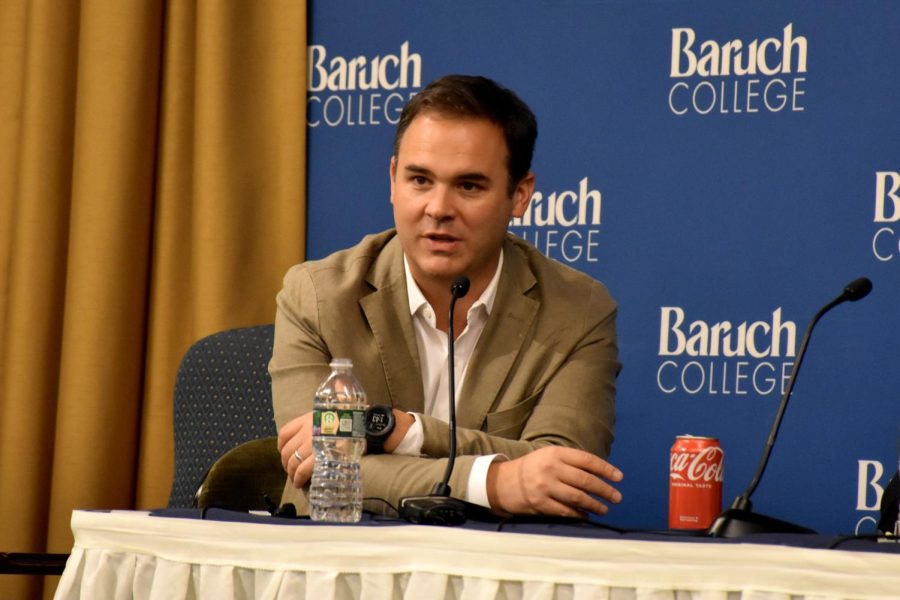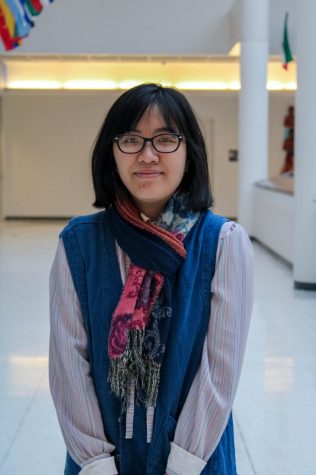Journalist David Gelles discusses corporate ethics in Zicklin Center panel
November 6, 2022
Journalist David Gelles visited Baruch College to discuss business ethics in a panel hosted by The Robert Zicklin Center for Corporate Integrity in light of his new book.
Gelles, who previously covered business news for The New York Times, published “The Man Who Broke Capitalism” on May 31. The book follows former General Electric Co. CEO Jack Welch and his efforts to generate more revenue through actions deemed “unethical.” Rather than writing a biography on Welch’s life, Gelles wrote about how Welch’s actions at GE influenced modern capitalism.
Zicklin Center Academic Director David Rosenberg welcomed Gelles to the Newman Vertical Campus’ Sandra and Lawrence Simon Conference Room as he introduced him at the start of the Oct. 27 event. Rosenberg intended for the discussion to help train “the next generation of not only corporate leaders but consumers, investors and voters” to think and act ethically.
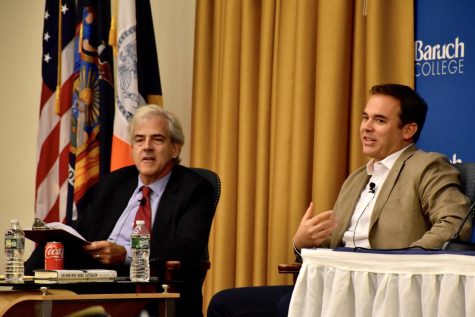
American companies experienced financial growth as they relied on post-war globalization in a period Gelles called “the golden age of capitalism.” Gelles said that GE workers expressed how “proud they are to have the largest receivable in their history, how proud they are of their suppliers more than ever [and] how proud they are to pay their taxes.”
However, Welch reversed this in 1981 by implementing internal reorganization efforts to an extreme degree. Welch downsized departments, laid off approximately 200,000 employees within his first 18 months and pushed for mergers and acquisitions. Although the CEO reportedly did this to maintain profit margins and slash labor expenses, Gelles said these actions were “not even necessarily in the best long-term interests of the company.”
“In the first years of the Reagan administration, he suddenly sees, ‘oh my gosh, this is the easy legal way to use the company’s profits to drive the stock price up,’” Gelles said. “That’s where more and more fraud is created by this corporation, and subsequently so many other American corporations.”
Gelles remarked on how Welch was never charged or indicted for his actions. Going into his retirement, Welch was “lauded as the most successful CEO of all time.” The author added that “so many CEOs are still essentially drawing from his playbook.”
Following the conversation between Gelles and Rosenberg, the two were joined in a panel by three professors who each represented a school within Baruch.
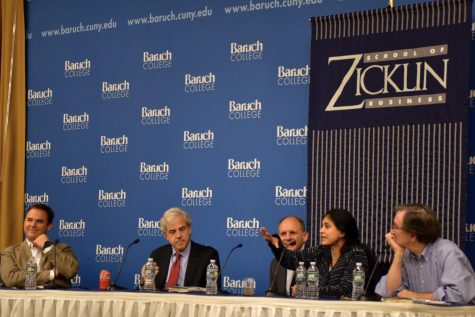
Representing the Larry Zicklin School of Business, finance professor Sonali Harazika commented that Gelles’ book was “provocative” and “conclusive.” She talked about how the business school prepares its students for careers in corporations through courses that put emphasis on ethics and examples from history, including Welch and GE.
“When I walk into my classrooms, I see students who care, I see students who want to make change and are actually making change in their lives in ways,” Harazika said. “When they are working in these companies — students who I would say are middle management or even lower middle management — they’re making change happen.”
Representing the Marxe School of Public Affairs, public policy professor Jonathan Engel commented that the “fundamentally mean-spirited, self-interested” Welch was an “odious” man.
After Engel asked if it was possible for anyone else to have performed as Welch had, Gelles said people similar to Welch existed but were not as extreme with their actions. Additionally, executives who Gelles interviewed for The New York Times would frequently bring up Welch’s name and pique his interest.
Representing the Weissman School of Arts and Sciences was anthropology professor Glenn Petersen, who recommended Gelles’ book to Rosenberg.
“I want desperately to have this book assigned to everybody at Baruch, because I think it perfectly shines a light on American business culture,” Petersen said. “It radiates across the society, but as somebody who teaches the first-year seminar, I know that the least likely way to get people to read is to assign the book.”
Petersen said that his goal in his anthropology classes is to provide “students with a talisman to protect them from the corrupting influences of the business school.” He added that “capitalism is designed to make us feel bad about ourselves,” so he thought the book laid out the idea well. Gelles said he wrote down Petersen’s phrase because he loved it.
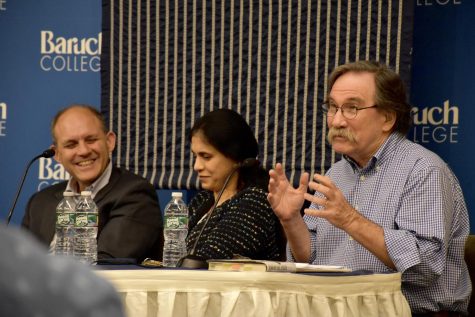
The Zicklin Center distributed the book to all attendees of the event for free.
In addition to Baruch students and staff, Baruch alumni and former General Electric employees attended the event in the Newman Vertical Campus. Attendees were invited to share their questions and comments during a question-and-answer session at the end.
One attendee, an alumnus at the college, recalled attending an event featuring Welch in the same conference room in May 2002. Another attendee expressed her dumbfounded-ness over how prestigious educational institutions, including Ivy League universities, produce business professionals who practice such unethical behavior.
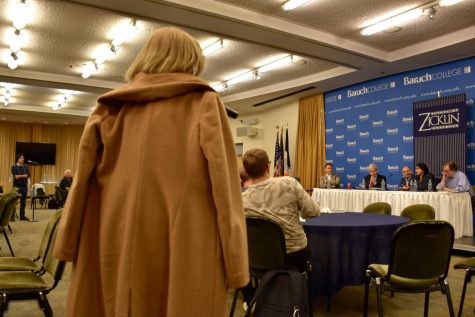
Although he “grudgingly” added the book’s last chapter about solutions and “good guys” in the industry, Gelles shared what kind of people he thought were heroes in the corporate world. He talked about Team Rubicon founder Jake Wood, who helps veterans find work on the frontline of natural disasters.
“Those are the stories we need right now, and they can do it at scale, right?” Gelles said. “Some of these organizations and companies can do it profitably […] But for me, personally, you asked me my heroes, it’s people like that who are leveraging their power — their influence — and actually trying to help people they don’t know and who don’t owe them anything.”



